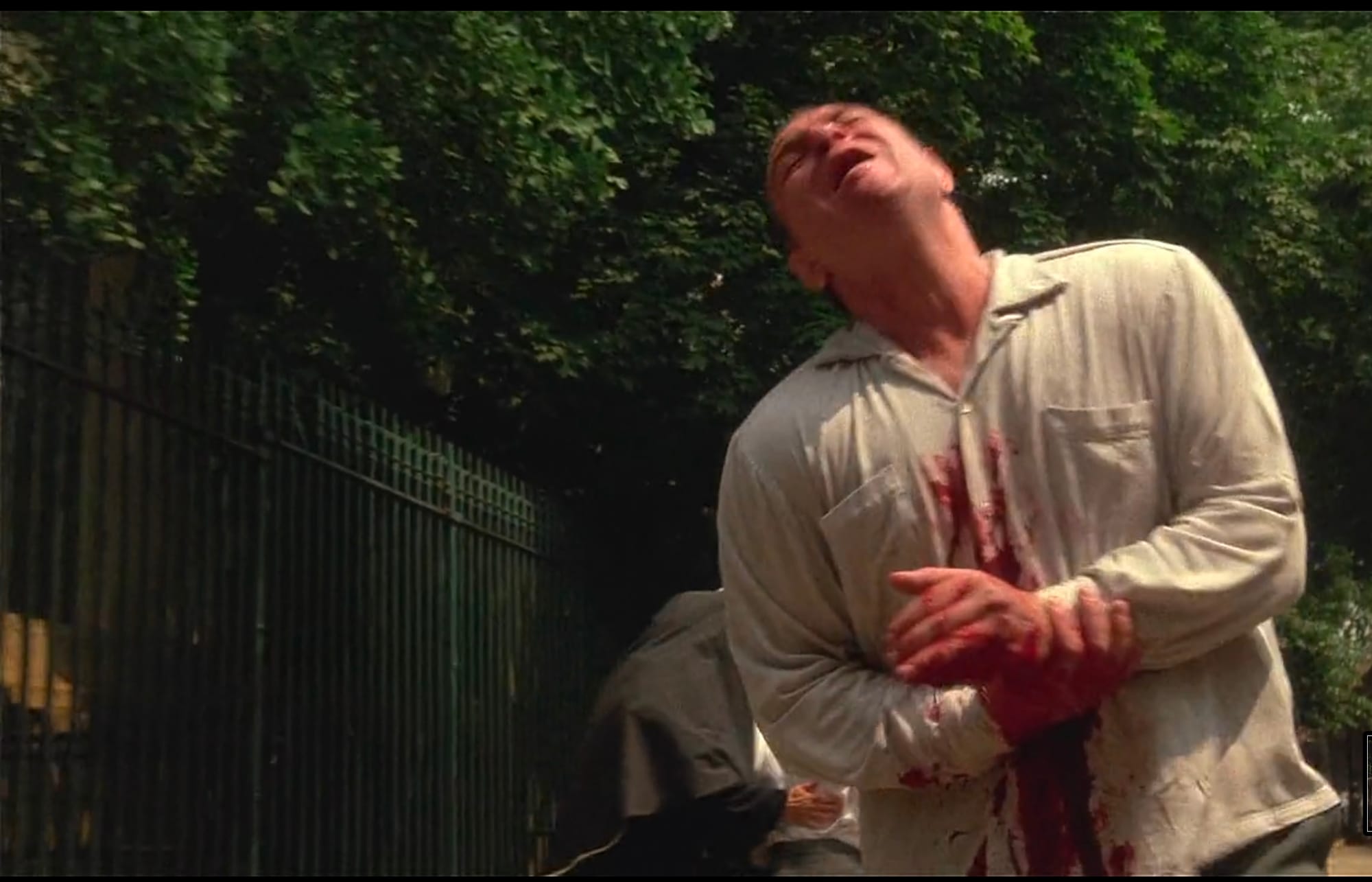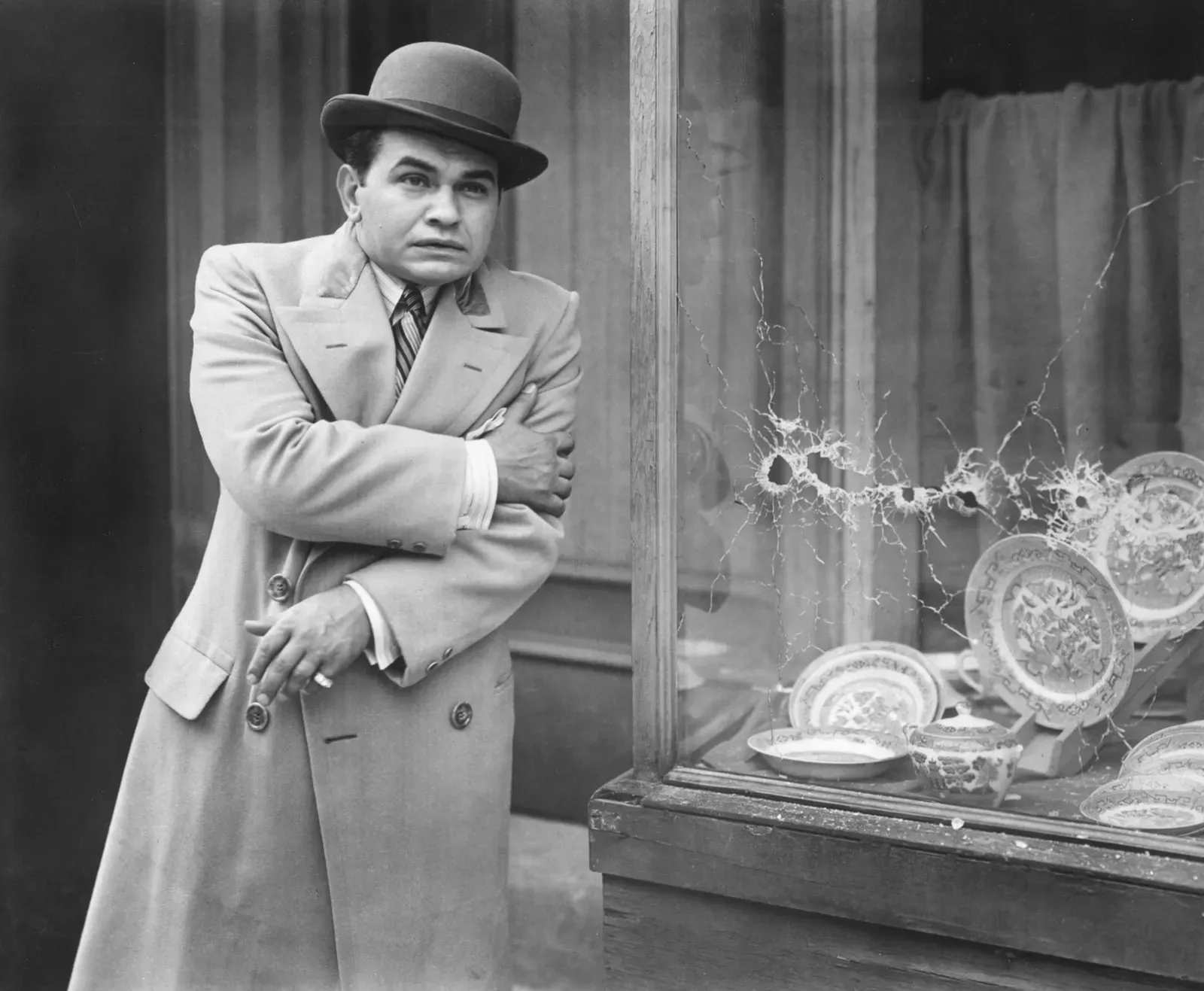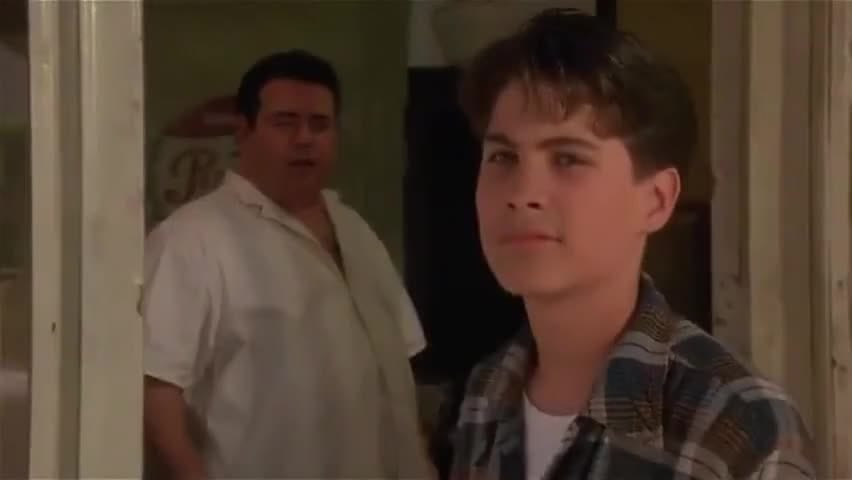VOCI DELL' ETNA

I was a teenager when I first heard the distinct tenor voice of Giuseppe Di Stefano when I had been watching Martin Scorsese's 'Goodfellas' (1990) and became instantly transfixed by a brief scene early on where a badly injured man with bleeding wounds is staggering through the streets of New York to the strains of 'Firenze Sogno' by Claudio Villa. There was just something about the operatic framing of this surreal moment of violence combined with the impassioned Neapolitan song with its accompanying orchestra and plucked mandolin that clearly made a profound impression on me. It was, I suppose, opera distilled to its most viscerally cinematic form, recalling both the verismo operas of Ruggero Leoncavallo and Pietro Mascagni but also the early Warner Brothers gangster movies from the 1930s, typically starring Edward G Robinson, James Cagney and Humphrey Bogart.

I've always been a sucker for films that include opera either in the soundtrack or in the scenes themselves. Watching Merchant and Ivory's 'A Room With A View' (1986) at a young age I was intoxicated by the life-affirming musical motifs of Puccini's 'Gianni Schicchi' that were unashamedly woven throughout Richard Robbins's original score. I later also came to love the scene in Francis Ford Coppola's 'The Godfather Part II' (1974) when Vito and Genco visit a local theatre in 1920's New York to see Carla (Genco's girlfriend) who is acting alongside a Di Stefano-like tenor who sings both 'Napule ve Salute' and 'Senza Mamma'. Clearly the Italian connection in all of these films makes opera directly relevant to the cultural milieu of the characters but it also brings out emotions that are bubbling beneath the surface, whether it is the repressed passion of the English tourists abroad in Florence in 'A Room With A View' or the simmering, volatile emotions of the gangsters in 'The Godfather' and 'Goodfellas'. The cliche of actual gangsters being reduced to tears listening to the likes of Frank Sinatra, Tony Bennett and Jimmy Roselli in the nightclubs and bars of Chicago, New York and Vegas says something about this strange dichotomy of them being both sensitive to music but insensitive in their criminal rackets, a musical form of atonement or confession perhaps outside of attending church on a Sunday. As for me, I possibly over-related in my uniquely provincial way to the young Henry Hill during my time watching gangster films as a teenager and hanging out with my brother and his friends who ran a local nightclub which I previously wrote about in 'The Krays Of Grays and The Goodfellas Of Stroud' (March 22, 2022) for Digital Renegade.

“You're a real jerk. You wasted eight fuckin' aprons on this guy. I don't know what the hell's wrong with you. I've gotta toughen this kid up." - Tuddy Cicero
Of all the tenors that Scorsese could have used for this particular scene outside of the cab stand scene in 'Goodfellas', somehow it makes the most sense for it to have been Di Stefano who was born on the slopes of Mount Etna in Sicily and whose voice contained all the passion, menace and emotion that has always been synonymous with that most volcanic region of Italy. You can hear in his open throated singing both the forlorn lover and smiling assassin. That unique ability to switch emotion in a sudden flash of the hot sun is what makes him so perfectly suited to singing the 'heart on sleeve' emotionalism of opera and Neapolitan street songs. Perhaps it's a tragic coincidence then that on the 3rd of December, 2004, Di Stefano was seriously injured during a robbery at his home in Kenya where he was left badly injured and unconscious, resulting in his increasingly failing health, ultimately leading to his death on the 3rd of March, 2008 in his home in Santa Maria Hoè, north of Milan, Italy at the age of 86.
Having first been introduced to the tenor via Scorsese's gangster masterpiece, I later happily discovered that Di Stefano was a frequent musical partner to Maria Callas who became another musical obsession of mine to rival that of Frank Sinatra. The contrast of Di Stefano's fiery tenor with Callas's incandescent soprano (with those occasional shards of ice) was an unbeatable combination in such operas as 'Tosca', 'Pagliacci', 'Cavalleria Rusticana' and 'Rigoletto' and it surprised no one back in their day that their on-stage love affairs were carried out behind the curtains from time to time, to mostly short term effect.
"Di Stefano is my idol. There is a solar voice ... It was the most incredible, open voice you could hear. The musicality of Di Stefano is as natural and beautiful as the voice is phenomenal." - Luciano Pavarotti
Di Stefano's historic legacy as one of the great voci dell'Etna ('the voices of Etna') - an actual title given to those born close to the 'mountain of fire', is as secure as metamorphic rock and listening to his records today is like listening to a combination of the fresh Mediterranean sea air fused with the heat from the molten lava of an active volcano. The elements of his native environment are contained with the open throated tones of his singing and he is in this way as much a part of the land as Etna itself.
Playing a few Di Stefano records the other day, I found myself marvelling at just how alive the sound of his voice is, given some of his most famous recordings were made over sixty years ago and found myself grateful for the unlikely cinematic introduction to this true genius of his musical craft.
For after I'd shed the juvenile aspirations of being a gangster, I settled down instead with the far more sustainable joy of being an avid listener to the music that made gangsters cry.